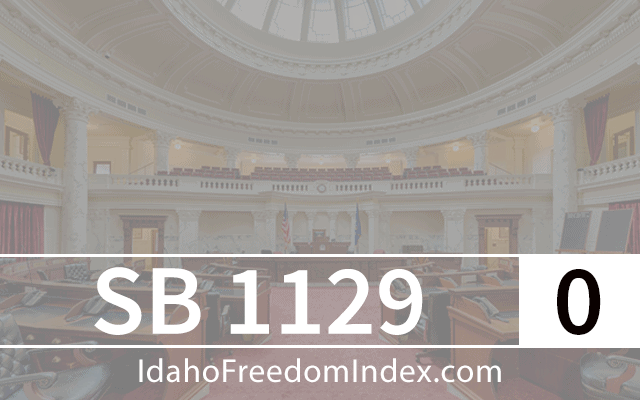


Bill description: Senate Bill 1129 would allow dental therapists to work in limited settings.
Rating: 0
Does it give government any new, additional, or expanded power to prohibit, restrict, or regulate activities in the free market? Conversely, does it eliminate or reduce government intervention in the market?
Dental therapists are mid-level dental care providers—basically, the physician assistants of dentistry. In the 18 states that have legalized the practice of dental therapy, these providers are trained to do more than dental hygienists, whose training is primarily limited to tooth cleaning, but they don’t have the same expertise as dentists. Still, dental therapists can crown teeth, fill cavities, extract teeth, and perform other minor operations. Dental therapists do not offer gum surgery, root canals, or dental implants—those procedures are still provided by dentists and surgeons.
The practice of dental therapy remains illegal in Idaho. Idaho law only allows licensed hygienists and dentists and unlicensed dental assistants to work in the field of dentistry. SB 1129 would allow persons who are trained in dental therapy to work in Idaho, opening up a new profession, new jobs, and providing a new avenue for patients to receive the dental care they need.
(+1)
Does it create, expand, or enlarge any agency, board, program, function, or activity of government? Conversely, does it eliminate or curtail the size or scope of government?
SB 1129 would have the state Board of Dentistry, which consists of five dentists, two dental hygienists, and one public member, oversee the regulation of dental therapists. The board would have authority to determine what procedures dental therapists can provide and how strict the supervision must be from dentists. It also would have the authority to investigate and discipline dental therapists and take other actions to regulate the industry.
(-1)
Does it increase barriers to entry into the market? Examples include occupational licensure, the minimum wage, and restrictions on home businesses. Conversely, does it remove barriers to entry into the market?
Under current law, there is no legal market for mid-level dental care. SB 1129 would reduce the legal barrier and allow well-trained dental professionals to offer their services.
This could have far-reaching effects for increased dental health coverage, as there are many Idahoans who lack access to affordable dental care. The federal Health Resources and Services Administration estimates that nearly 4 out of every 10 Idahoans live in a dental Health Professional Shortage Area. The state Department of Health and Welfare estimated that 44 percent of Idahoans did not have dental insurance as recently as 2016.
Dental therapists are able to offer their select services at a lower cost, as they have to go to fewer years of education and often take out less in debt, if they have any. SB 1129 would allow Idaho residents to receive low-cost, quality dental care from dental professionals.
(+1)
Does it violate the principle of equal protection under the law? Examples include laws which discriminate or differentiate based on age, gender, or religion or which apply laws, regulations, rules, or penalties differently based on such characteristics. Conversely, does it restore or protect the principle of equal protection under the law?
SB 1129 would only allow dental therapists to work in a select number of dental facilities. They could only complete the full scope of their work in clinics within tribal reservations on behalf of the federal government. They could also perform preventive services in extended access oral health care settings, such as a school district, county, state, or federal agency, a long-term care facility, a public health district, or a federally qualified health center in a community that has a border wholly or partially adjacent to the exterior boundaries of a tribal reservation.
While all Idahoans and many dental clinics could benefit from the services of dental therapists, SB 1129 would limit their work to just tribal clinics and a handful of these extended-access locations.
(-1)
Note: This analysis reflects the Senate amendments made to the legislation.


